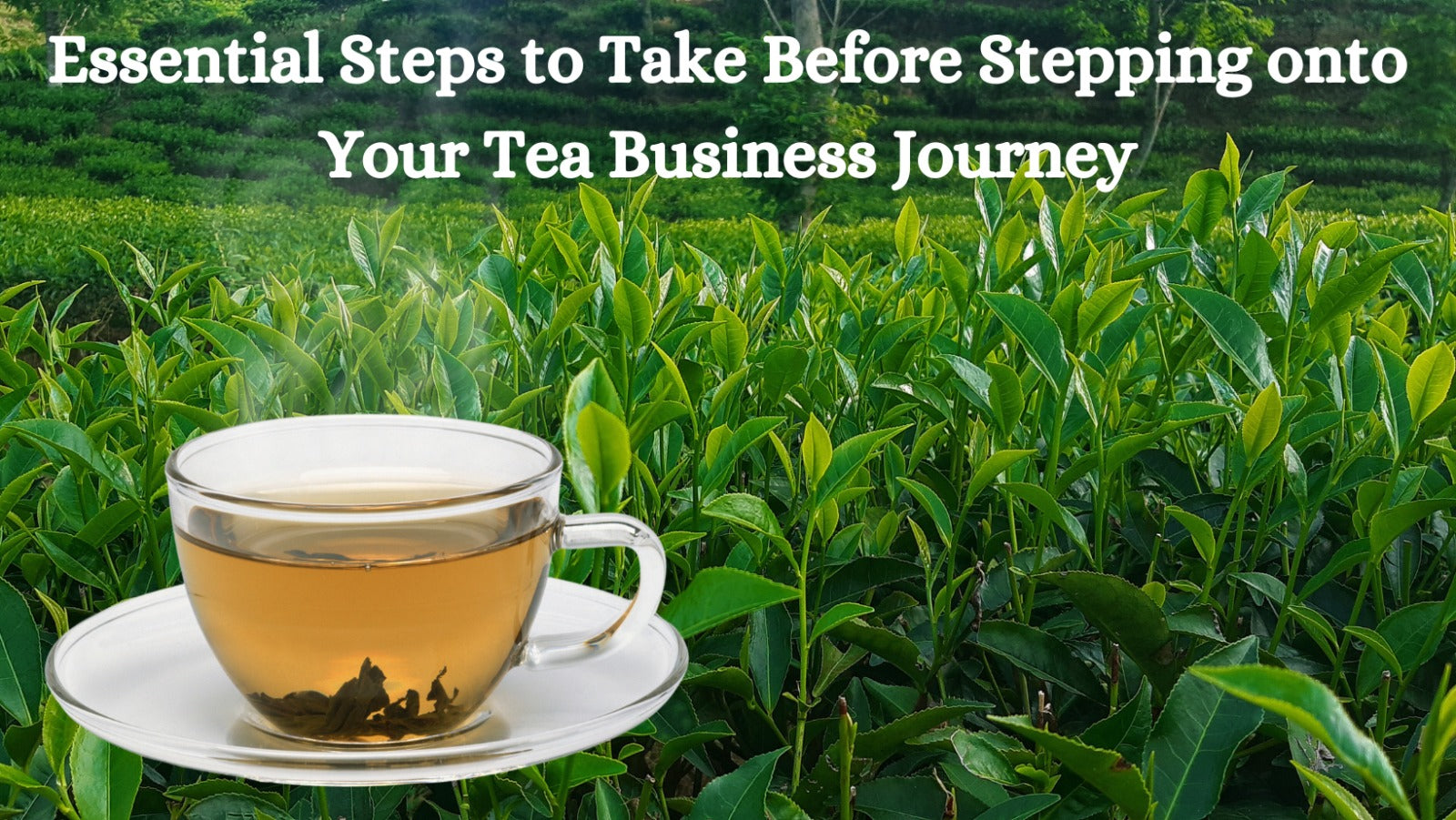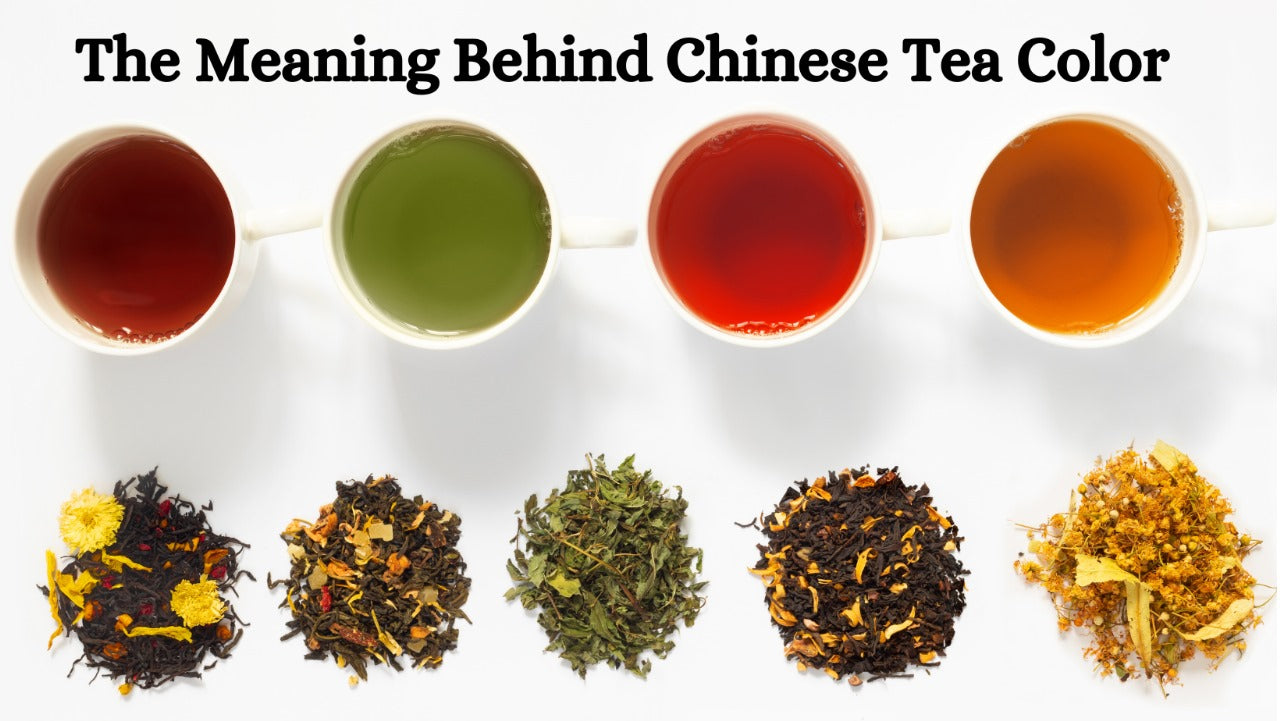Are you a tea lover who can't resist a warm cup of tea, no matter the time of day? While tea is often praised for its health benefits and soothing effects, excessive tea consumption can have some surprising consequences. In this article, we delve into the truth about tea overload and its impact on your health.
From insomnia and anxiety to digestive issues and nutrient deficiencies, excessive tea intake can wreak havoc on your body. We uncover the reasons behind these health concerns and provide valuable insights on how to enjoy tea in moderation without compromising your well-being.
But don't worry, this doesn't mean you have to give up on your beloved beverage altogether. We'll also share evidence-based tips for incorporating tea into a balanced lifestyle, helping you navigate the world of tea consumption without going overboard.
So grab a cup of your favorite brew and join us as we uncover the truth about excessive tea consumption and how to find the right balance for a healthier, happier you.
Health Benefits of Moderate Tea Consumption
Research has shown that moderate tea consumption can contribute to improved heart health, reduced risk of certain cancers, and enhanced brain function. The antioxidants found in tea, such as catechins and flavonoids, have been associated with these positive effects. Additionally, tea contains compounds that can boost the immune system and help protect against chronic diseases.
However, it is important to note that these benefits are derived from moderate tea consumption. Going overboard with your tea intake can have adverse effects on your health, as we will discuss in the next section.
Negative Effects of Excessive Tea Consumption
While tea is generally considered safe for consumption, excessive tea intake can lead to a range of negative effects on your health. One of the most common consequences is insomnia. Tea contains caffeine, a stimulant that may disrupt sleep patterns. Consuming excessive amounts of tea, especially in the evening, can make it difficult to fall asleep and result in poor-quality sleep.
Another negative effect of excessive tea consumption is increased anxiety. Caffeine can stimulate the nervous system and trigger feelings of restlessness and anxiety in some individuals. If you already struggle with anxiety or have a sensitive nervous system, excessive tea intake may exacerbate these symptoms.
In addition to sleep and anxiety issues, excessive tea consumption can also cause digestive problems. The tannins present in tea can interfere with the absorption of iron and other minerals, leading to nutrient deficiencies. This may lead to fatigue, weakness, and compromised immune function. Furthermore, excessive tea intake can irritate the digestive system and cause symptoms like bloating, diarrhea, and stomach cramps.
How Much Tea is Too Much?
The amount of tea that is considered excessive varies depending on several factors, including the individual's sensitivity to caffeine and overall health. However, as a general guideline, it is recommended to limit your tea consumption to no more than 400 milligrams of caffeine per day. This equates to approximately 4 cups of brewed tea.
It is important to note that different types of tea contain varying amounts of caffeine. For example, black tea generally has higher caffeine content compared to green tea or herbal tea. If you are unsure about the caffeine content of your favorite tea, you can check the packaging or research online to make an informed decision about your consumption.
Signs of Tea Overdose
Tea overdose, although rare, can occur if you consume excessive amounts of tea regularly. Some common signs of tea overdose include increased heart rate, restlessness, irritability, headaches, and difficulty concentrating. If you experience any of these symptoms after consuming tea, it may be a sign that you are consuming more than your body can handle. Pay attention to your body and adjust your tea intake accordingly.
Common Misconceptions about Tea Consumption
There are several misconceptions when it comes to tea consumption. One common belief is that herbal teas are caffeine-free. While it is true that herbal teas do not contain caffeine from the Camellia sinensis plant, some herbal teas, such as yerba mate and guayusa, can contain high levels of caffeine. It is important to read the labels and educate yourself about the caffeine content of different herbal teas before consuming them.
Another misconception is that decaffeinated tea is completely caffeine-free. Although the decaffeination process removes a significant portion of caffeine, small amounts may remain. If you are sensitive to caffeine or trying to avoid it completely, it is best to opt for herbal teas or caffeine-free alternatives.
Tips for Maintaining a Healthy Tea Consumption Habit
To enjoy the benefits of tea without going overboard, here are some tips for maintaining a healthy tea consumption habit:
- Be mindful of your caffeine intake: Keep track of your overall caffeine consumption from all sources, including tea, coffee, energy drinks, and chocolate. This will ensure you stay within the advised daily limit.
- Opt for decaffeinated or herbal teas: If you are sensitive to caffeine or want to reduce your caffeine intake, choose decaffeinated or herbal teas. There is a wide variety of flavors and blends available that are caffeine-free and still provide a delightful tea-drinking experience.
- Time your tea consumption: Avoid consuming tea too close to bedtime to prevent sleep disturbances. Opt for herbal teas or caffeine-free alternatives in the evening to promote better sleep.
- Listen to your body: Pay attention to how your body reacts to tea consumption. If you notice any adverse effects, such as increased anxiety or digestive issues, consider reducing your tea intake or switching to alternatives.
Alternatives to Excessive Tea Consumption
If you find yourself consuming excessive amounts of tea and struggling to cut back, there are alternatives you can explore to satisfy your cravings without overloading with tea.
One option is to incorporate other beverages into your routine, such as herbal infusions, fruit-infused water, or warm milk with a hint of natural sweeteners like honey or cinnamon. These alternatives provide variety and hydration without the potential negative effects of excessive tea consumption.
Additionally, exploring different hobbies or activities can help distract you from excessive tea consumption. Engaging in physical exercise, reading, or spending time with loved ones can redirect your focus and reduce the urge to constantly reach for a cup of tea.
Seeking Professional Help for Tea Addiction
In rare cases, excessive tea consumption can lead to addiction. If you find yourself unable to control your tea intake despite negative consequences, it may be beneficial to seek professional help. Seek personalized guidance and support from a healthcare professional or addiction specialist to address your unique situation.
Conclusion: Finding a Balance with Tea Consumption
Tea is a delightful beverage that can be enjoyed as part of a healthy lifestyle. By understanding the potential negative effects of excessive tea consumption and implementing moderation, you can continue to savor your favorite brew without compromising your well-being.
Remember, moderation is key. Be mindful of your tea intake, listen to your body, and adjust accordingly. Explore alternatives and seek professional help if needed. With the right balance, you can continue to enjoy the many benefits that tea has to offer while maintaining a healthier, happier you.
So, go ahead and brew yourself a cup of tea, sip it slowly, and find the perfect harmony between indulgence and moderation. Cheers to your well-being!




